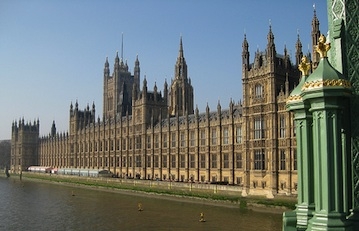The frozen state pension for UK pensioners living abroad in countries such as Australia, Canada, New Zealand and South Africa, will come under the microscope in Parliament today.
MPs will take part in a backbench business debate on ‘uprating or pensions for UK pensioners living overseas’.
This freeze has been maintained primarily due to “cost and the desire to focus constrained resources on pensioners living in the UK”, Parliamentary papers stated.
The pensions of expats are currently paid at the same rate as it was when they first became entitled, or the date they left the UK, if they were already pensioners then.
This applies in countries that are not party to a reciprocal social security agreement with the UK, which requires increases to be paid. Where the individual lives in a European Economic Area country, or one with which there is a relevant reciprocal agreement, the pension is uprated.
Under existing rules, anyone who retires to a country within the EEA has their pension uprated by the ‘triple-lock’, meaning it rises by the highest of earnings, prices or 2.5% each year.
AJ Bell warned this week, however, that in the event of Brexit the UK might have to negotiate ‘reciprocal’ arrangements with individual EU countries to maintain the status quo.
There are about 472,000 UK citizens retired in the EU who receive uprated pensions who could also be affected by a Brexit vote.
Based on an individual aged 65 in receipt of the £155.65 flat-rate state pension, the loss of uprating would cost around £50,000 over 20 years, AJ Bell estimated.
MP Chris Grayling, Leader of the House, said in March: “The Government have no intention of changing the current situation. The cost of doing so would be enormous, and the situation that pensioners face has been the situation for decades.”
The policy of not awarding increases has been followed by successive governments and continues with the introduction of the new State Pension from April 2016.
The policy has been subject to legal challenge. The case was heard by the European Court of Human Rights' Grand Chamber in September 2009 and the Court's judgment of March 2010 was in the UK Government's favour.
Shailesh Vara, Work and Pensions Minister, confirmed that the current Government took the same view in January, saying: “As honourable members will be aware, the state pension is payable worldwide, but upratings for people who are not ordinarily resident in Great Britain are generally restricted to people living in the European economic area, Switzerland, Gibraltar or countries with which there is a reciprocal agreement that provides for uprating.
“That has been the policy of successive Governments for the past 70 years, and these provisions extend the same policy to the uprating of the new state pension.”

